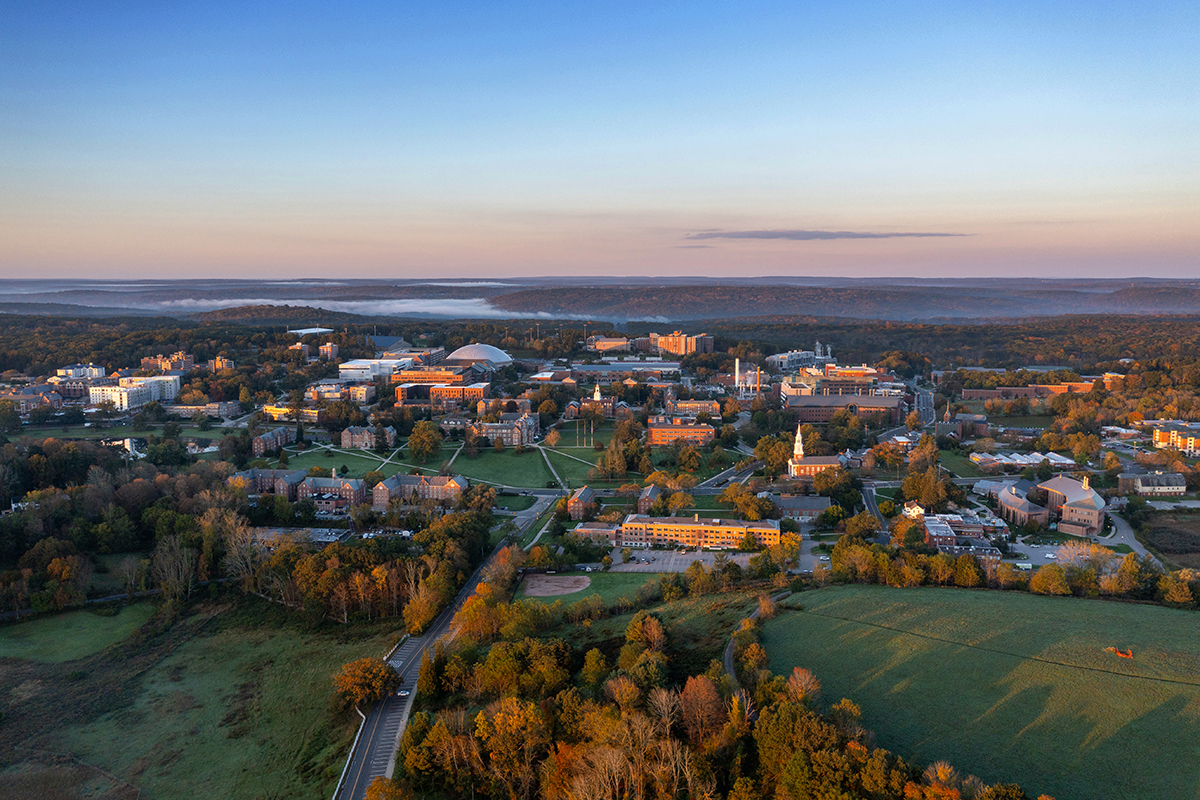About Us
The Department of Geography, Sustainability, Community, and Urban Studies produces problem-focused education and research. We address questions related to climate change, sustainability, resilience, health, and social inequities.

Who We Are
Founded in 2024, the Department brings together geography and urban and community studies, while also providing an administrative home for the cross-college Environmental Studies Program.
The Department’s goal is to create a hub for interdisciplinary research and engaged scholarship and education. Our programs interweave research and community engagement to foster creative, capable, and adaptable citizens in Connecticut and beyond. We work in and with communities to enable the urgent societal transformations called for by scientific evidence and insights.
View our Department bylaws and policies (UConn NetID is required for access).
Our Priorities
Education
The Department offers degree programs at the undergraduate and graduate levels and provides general education for all UConn undergraduate students. Students may explore topics such as:
- Geographic technologies and geospatial artificial intelligence (GeoAI).
- Spatial and big data analysis.
- Climate science and society.
- Social dimensions of environment/human health.
- Urban planning.
- Justice and community development.
- Environmental humanities.
- Environmental law, policy, and governance.
We promote innovative teaching that allows students to get involved with their communities through internships and field studies. Upon completing our programs, students are well-qualified for graduate study and for positions as leaders in municipal and state government agencies, startups, and nonprofit, community, and educational organizations.
Research
The department houses a community of natural scientists, social scientists, and humanists. Our research is aligned in several primary thematic areas:
- Spatial analysis of social issues.
- Geographic information sciences.
- Human environment dynamics.
- Earth systems sciences.
Within and across these themes, our faculty and students have research strengths in several areas, including:
- Environmental policy.
- Climate and ecosystems sciences.
- Global health and health disparities.
- Geographic information science and GEO-AI.
- Indigenous perspectives.
- Renewable energy.
- Social and political ecology.
- Social vulnerability and resilience to hazards
- Spatial big data analysis.
- Urban planning and workforce development.
We build strong, justice-oriented theoretical foundations of the climate, environment, and society to help inform policy-making and social change. For example, we are leaders in UConn’s interdisciplinary JUSTICE Collaboratory. Our research and advocacy are essential components of our work to understand and address the needs of communities.
Community Engagement
The department collaborates with communities to co-produce knowledge across disciplines. Examples of this include the sustainable community food systems minor and the Urban Semester Program, a 27 hour per week internship open to all students. We are leaders in the UConn@COP program, which takes a student delegation to the UN Climate Summit. We also facilitate discussions with policymakers at the local, national, and global levels.
University Service
The Department supports the University in teaching, conducting research, and providing service and outreach to communities.
We are deeply committed to cultivating an inclusive environment for our diverse community of faculty, staff, and students. We seek to identify, understand, and transform the social, economic, environmental, and political drivers of structural inequities through our work.
We also provide a place for collaboration across unit boundaries and campuses in the State.